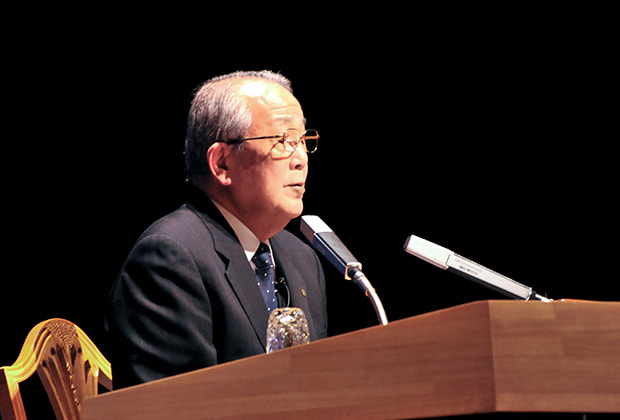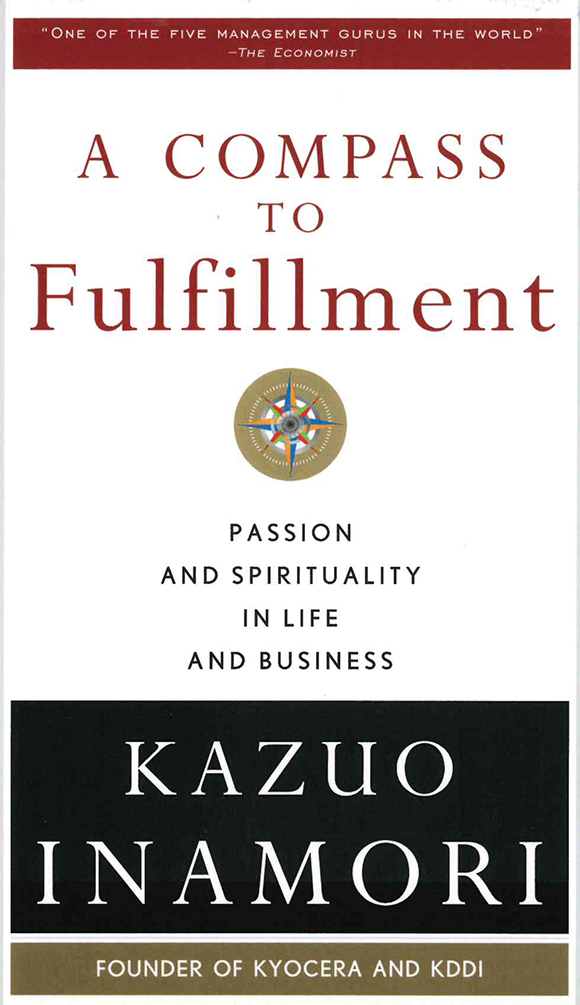Lectures
The Six Endeavors

What are the Six Endeavors?
The Six Endeavors are basic principles that Inamori identifies as essential in managing business and living a wonderful life. He believes that anyone who chooses to live by these principles can enjoy a wonderful life.
Strive Harder than Anyone Else
It is the law of nature that all efforts must be exerted toward survival. This law applies to everything from wildflowers and animals to all of us as well.
Inamori tells us that in order to "strive harder than anyone else," we must first fall in love with our work. If you learn to love your work, you will dedicate yourself further, which will stimulate stronger desires and the creativity to make continuous improvements. "I'm working very hard in my own way" shouldn't be the level of our effort; we should be able to proudly declare, "I'm striving harder than anyone else."
The key is to fall in love with your work; become engrossed by it; and exert efforts far above others. Striving harder than anyone else will produce wonderful results.
Remain Humble
There is an ancient Chinese proverb that says, "Only through humility can one find fortune." This means that only by being humble can we achieve true happiness.
It may sometimes appear that the only people who succeed are those who step on others to get ahead, but this is not true. As shown by proverbs from around the world that emphasize the importance of humility, truly successful people are those who remain humble.
But even successful individuals can forget their humility upon achieving success and obtaining a high position, becoming arrogant in the process. It's possible for someone who was humble at one point to unknowingly become conceited and make grave mistakes later in life.
"Remain humble." It's essential to engrave this principle deeply in our hearts and live by it.
Reflect Daily
Make a habit of taking a quiet moment to reflect on your actions at the end of each day.
For example, consider questions like, "Did I upset anyone?" "Was I unkind?" "Was I arrogant?" "Did I behave cowardly?" "Was I selfish?" Assess whether you acted righteously as a person.
If there are points of regret in your behavior or words, you must correct them.
Living your life with daily reflection enhances your character and humanity. This is because daily reflections help curb our negative tendencies and cultivate our positive ones.
Those who continually seek improvement are those who reflect daily.

Appreciate Life
Humans cannot survive alone. We owe our existence to the air, water, food, family, colleagues, and all of society. We are supported by everything that surrounds us.
If we think of life in this way, we will naturally evoke gratitude. It may seem impossible to feel this when your life is full of misfortune or health concerns. But even in those cases, it's important to feel gratitude for being alive.
When gratitude emerges, one starts to feel happiness more naturally. Being thankful for life and feeling happiness can transform one's life into a rich and fulfilling experience. Instead of constantly complaining, appreciate what you have now and express that gratitude by saying "thank you" or giving a smile to those around you. This not only warms your heart but also the hearts of those around you, making everyone feel happier.
Do Good Deeds and Serve Others Unendingly
There's an old Chinese saying, "A household that accumulates good deeds will experience abundant joy." This means that families who practice kindness will receive good fortune in return.
Our world operates on the law of cause and effect. Thinking good thoughts and performing good deeds can change one's fate for the better. Naturally, this will also guide your work in a positive direction.
The essence of good deeds includes fundamental human values like kindness, honesty, sincerity, and humility.
As the old saying goes, "Kindness always returns to the giver." By accumulating good deeds, our lives become better.
Don't Dwell on the Past
Everyone faces failures and makes mistakes in life. However, as people grow by repeating these mistakes, there's no need to continuously regret failures.
There's a saying that goes, "Spilled water will not return to the pot," meaning that you cannot recover water once it's been spilled. Once something has happened, dwelling on it won't help. In fact, it can become the root of mental distress, leading to an unhappy life.
While it's essential to reflect on one's mistakes, once you've adequately reflected, it's crucial to move on without lingering regrets.
Instead of continuously worrying over what's done, think rationally and take new actions. Doing so will carve a path to a wonderful life.
From the 16th Seiwajyuku National Convention (July 17, 2008)

